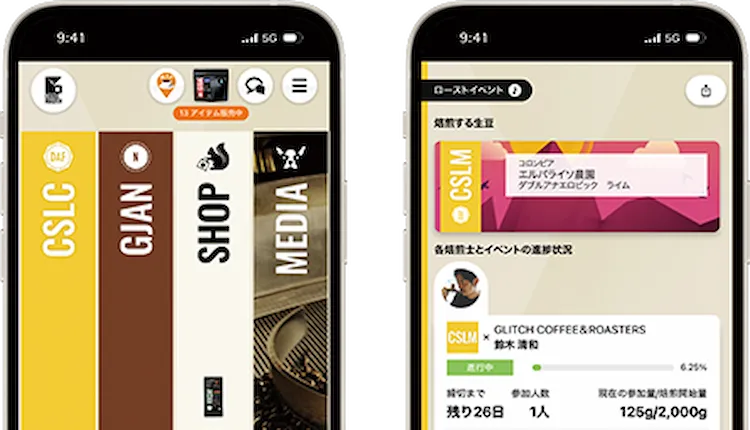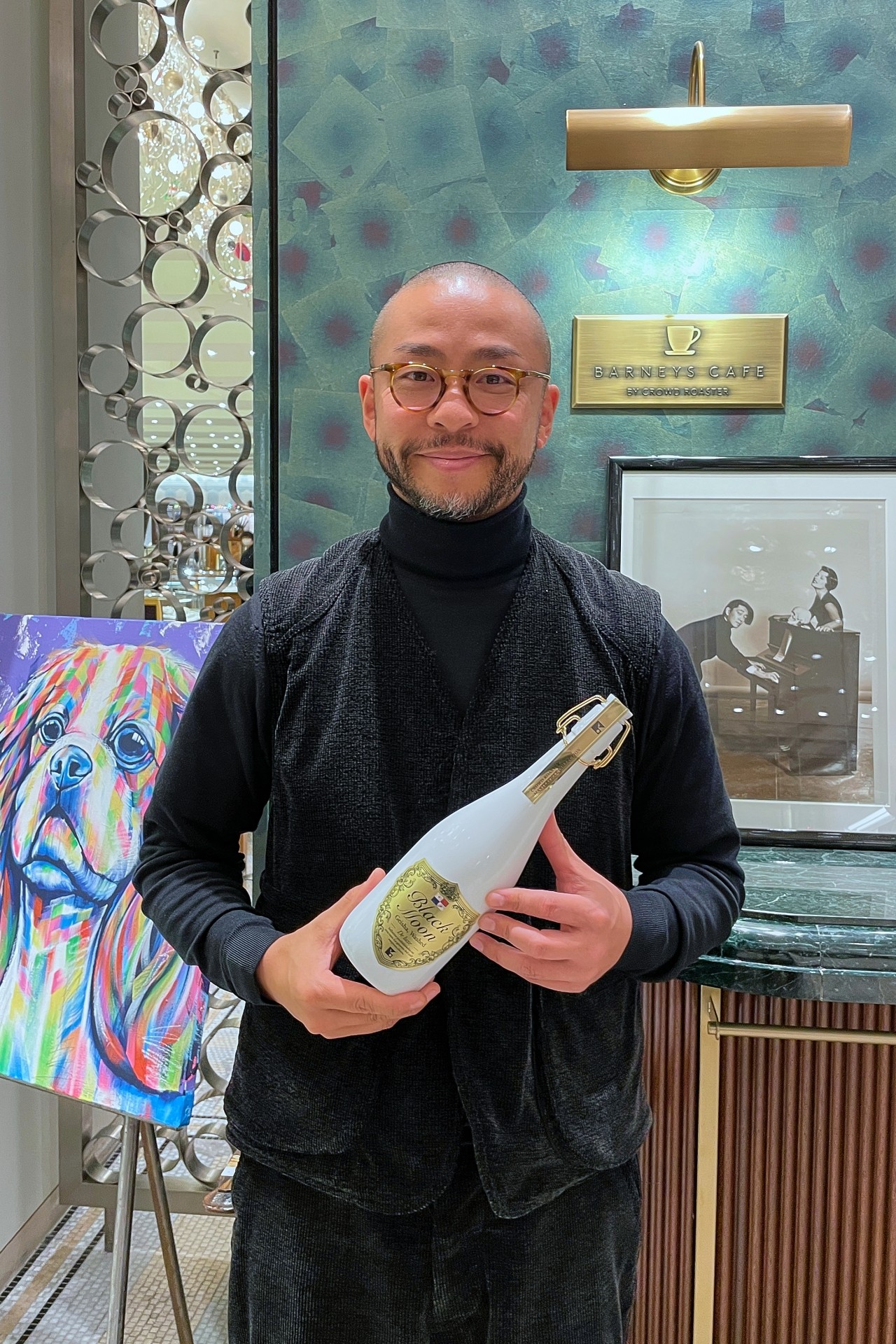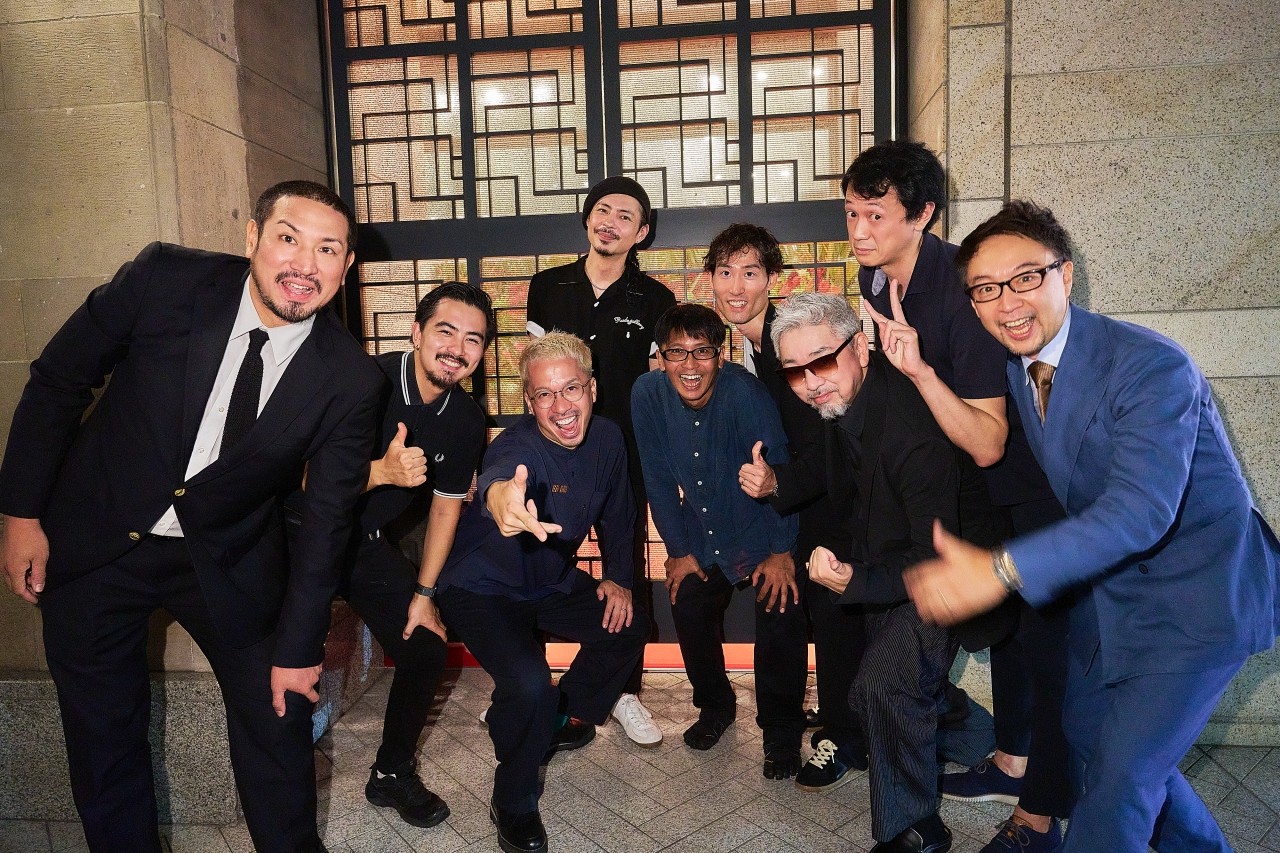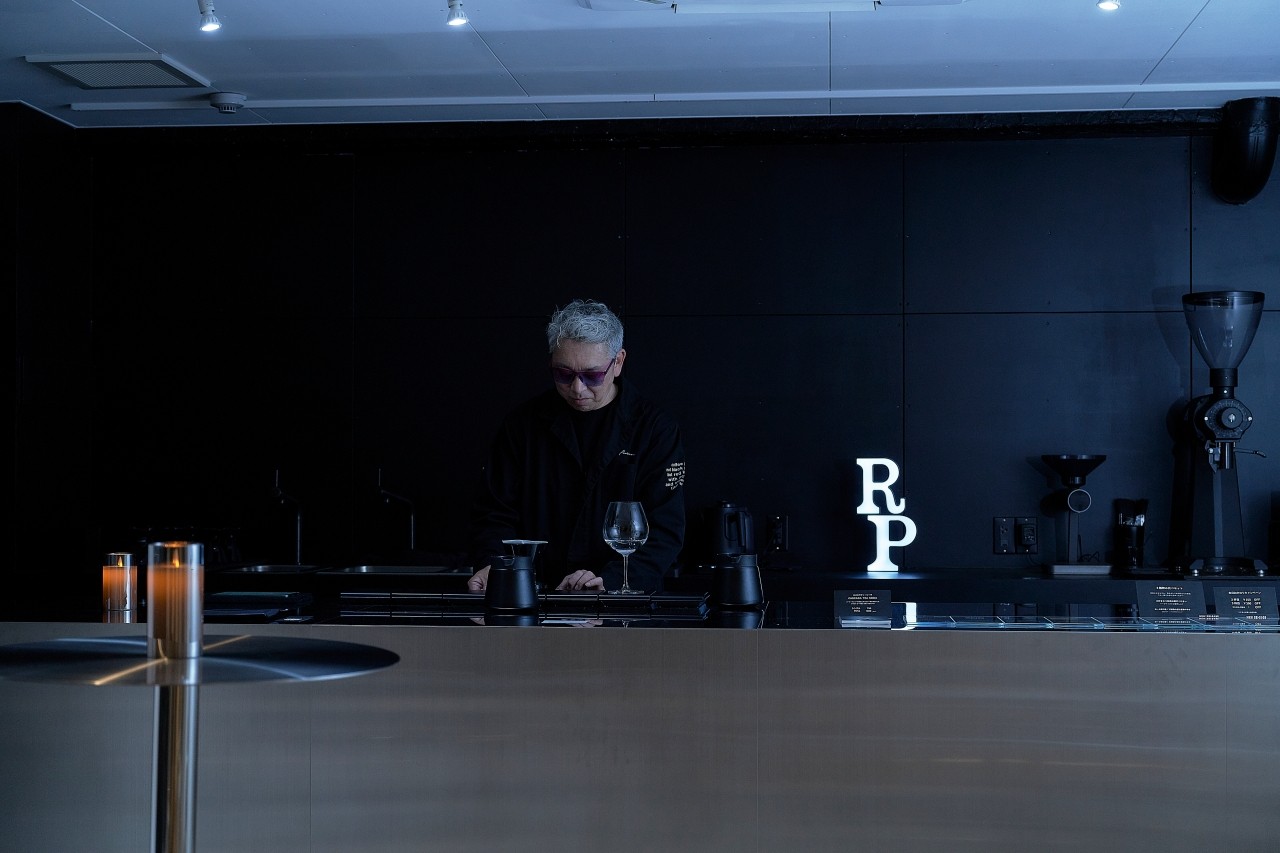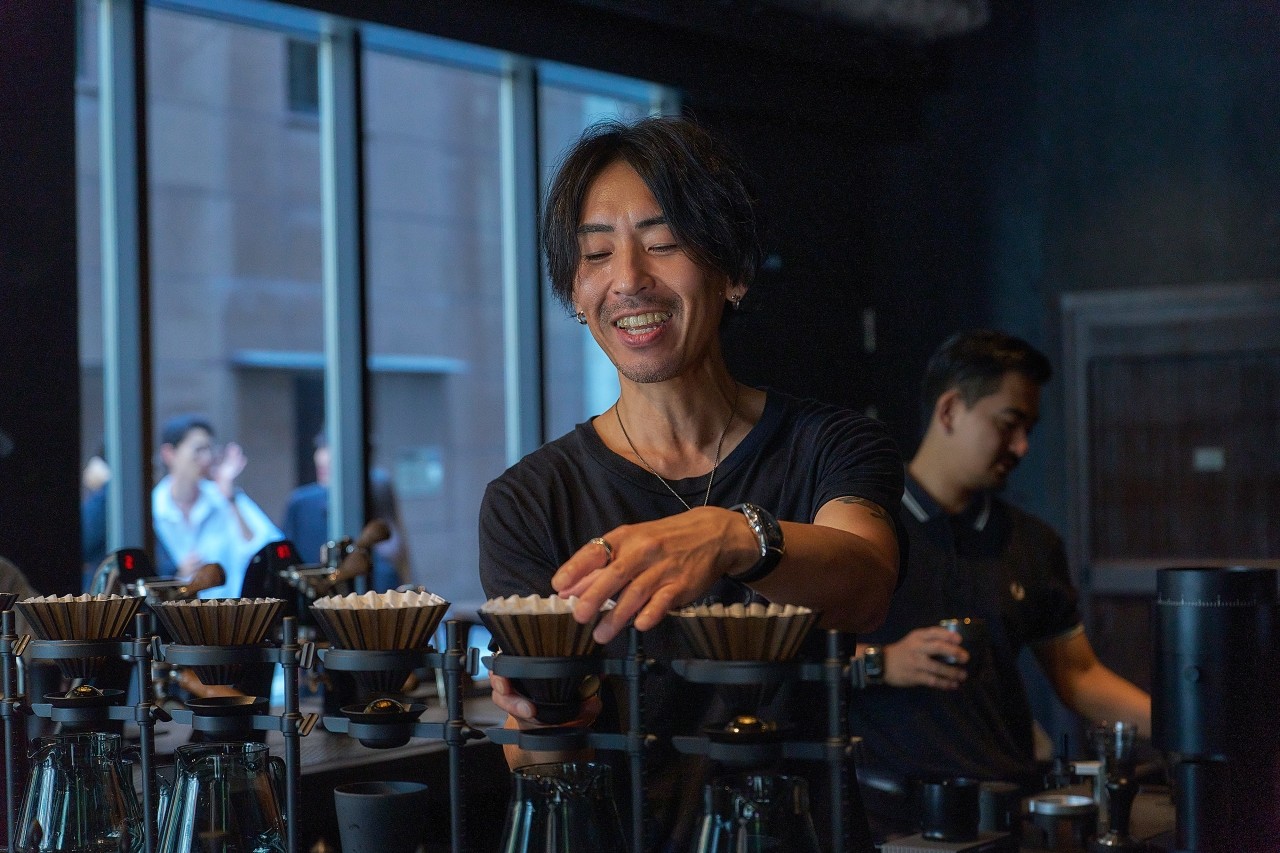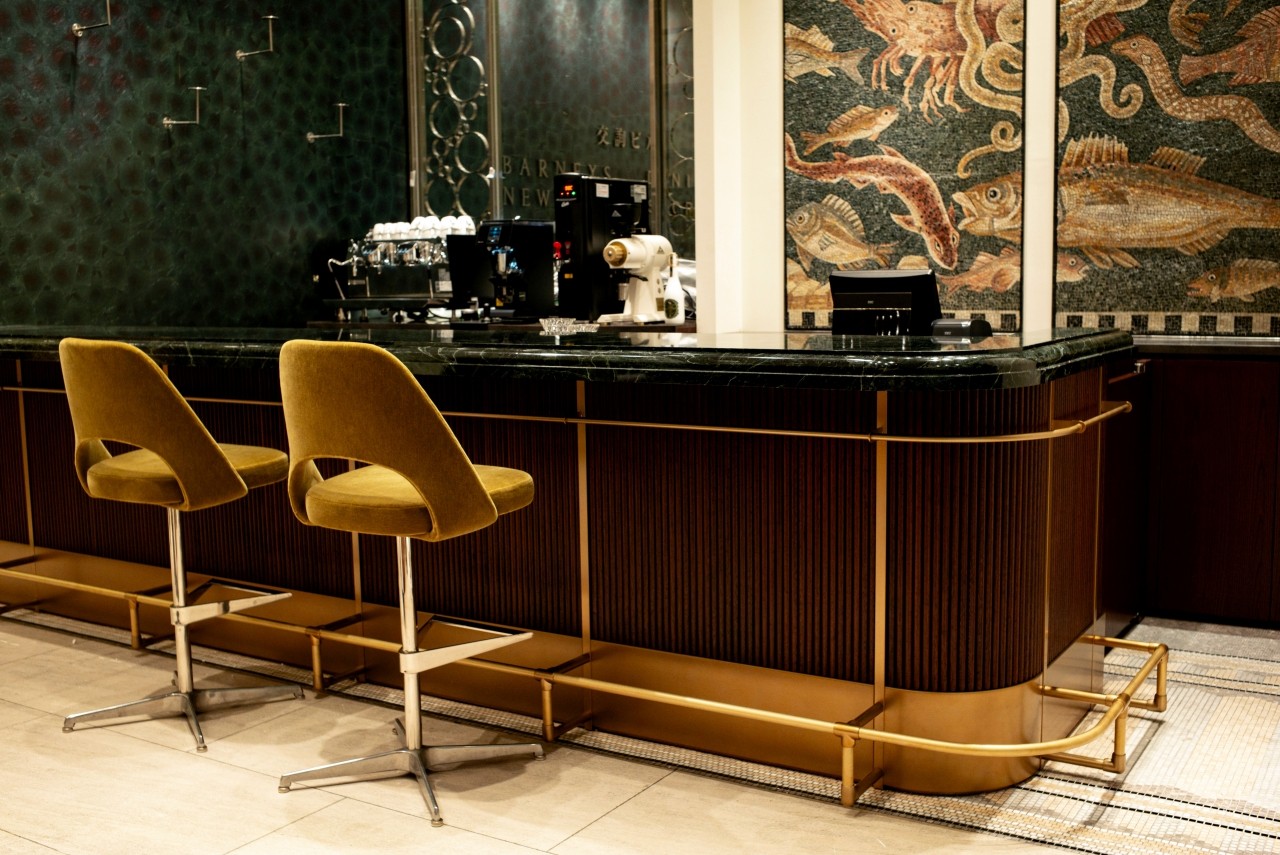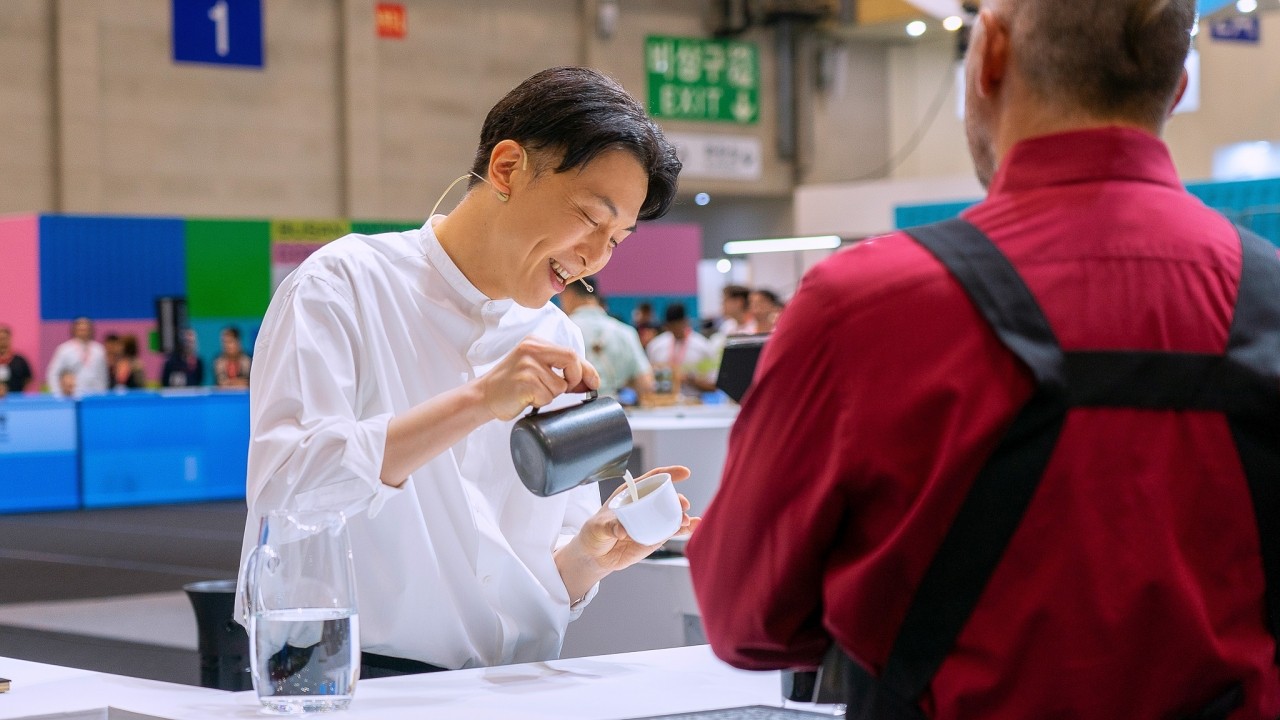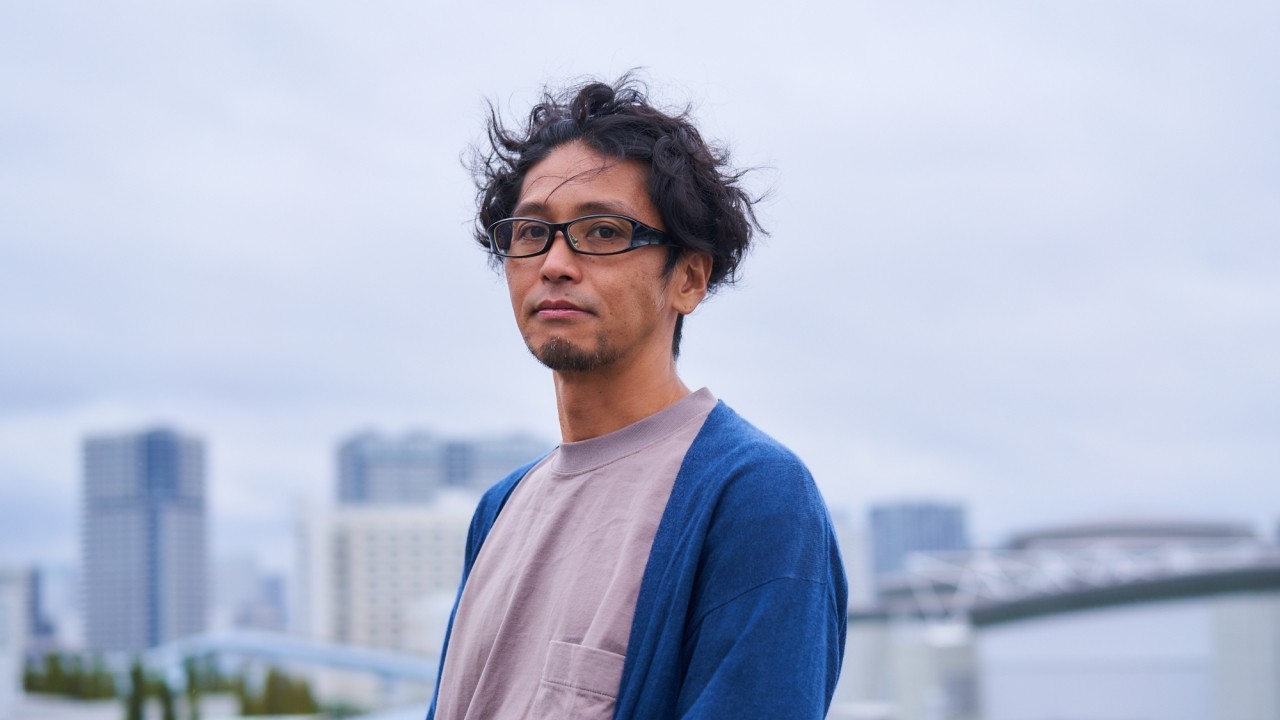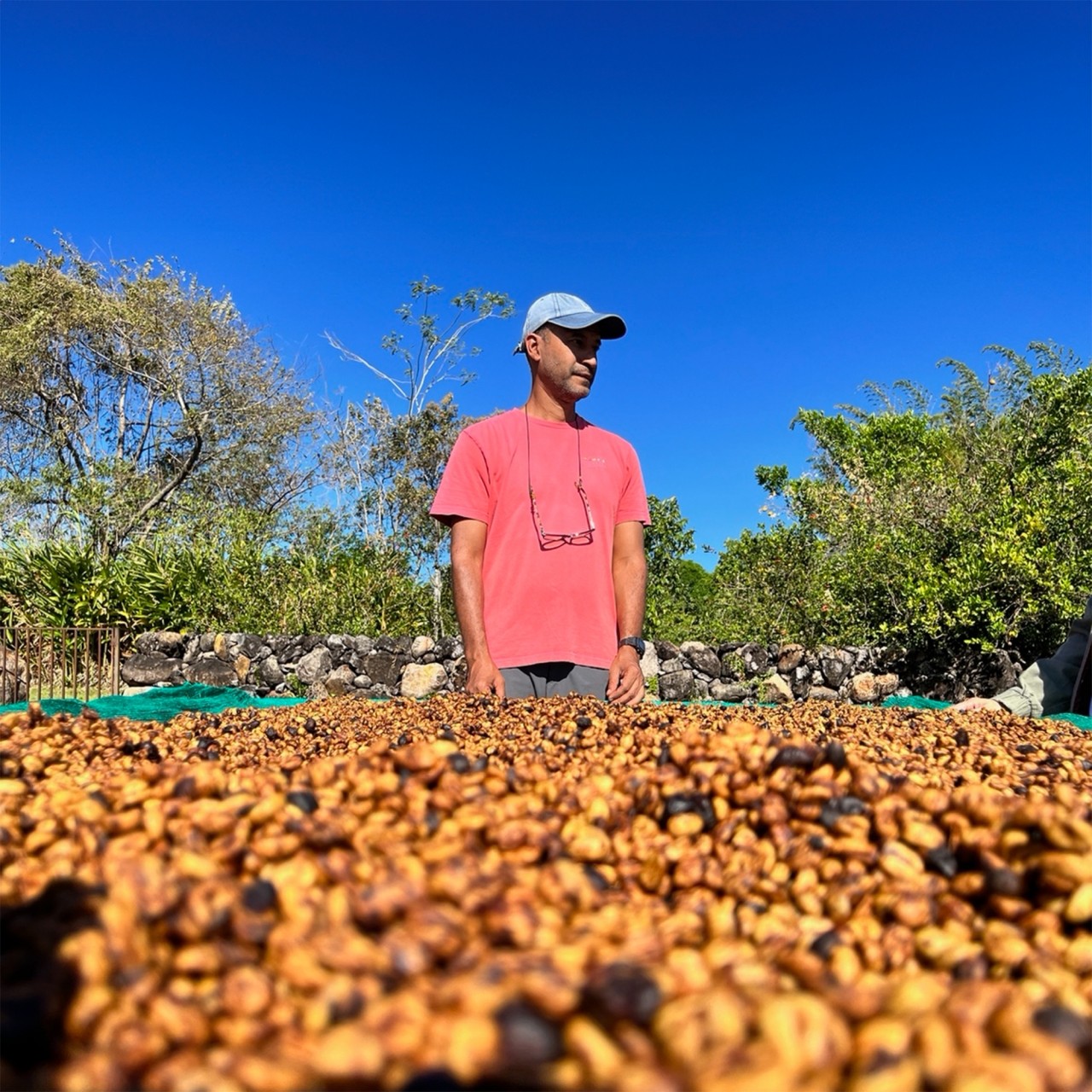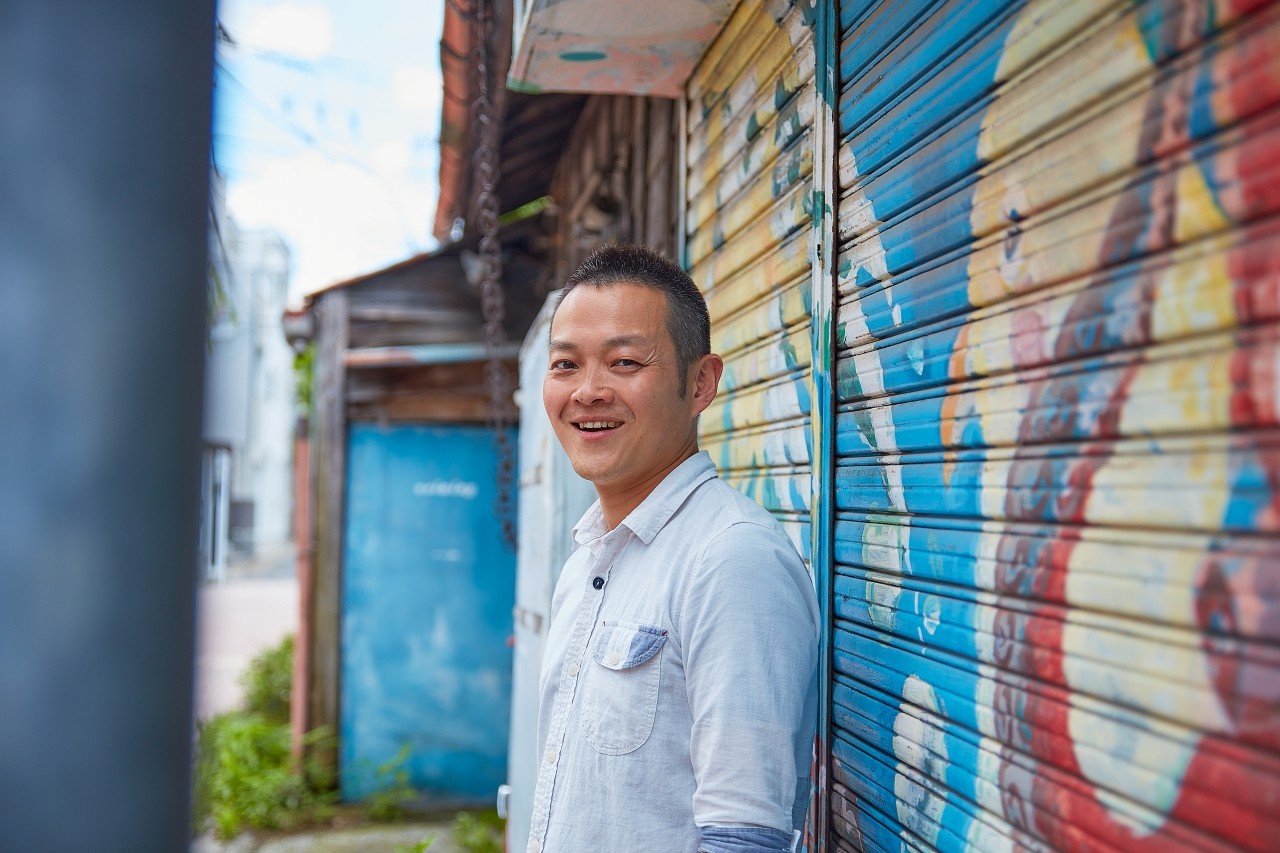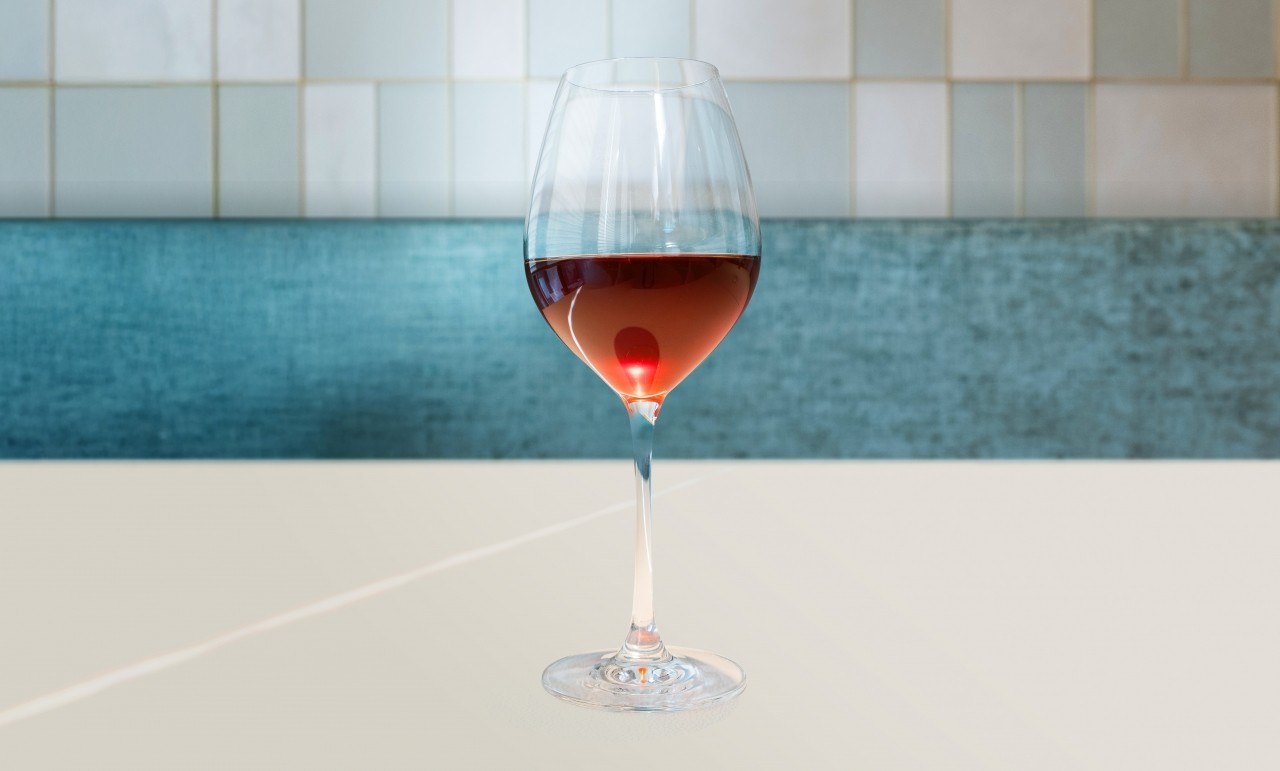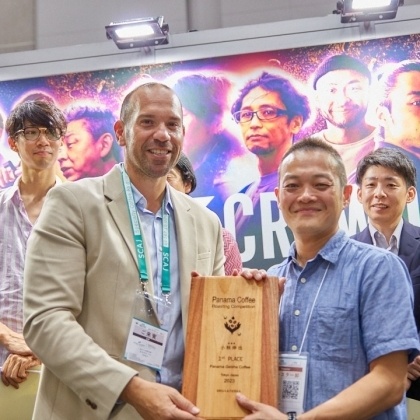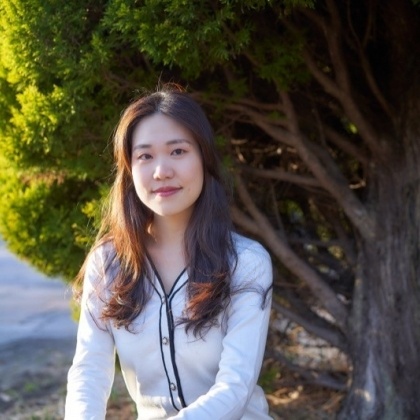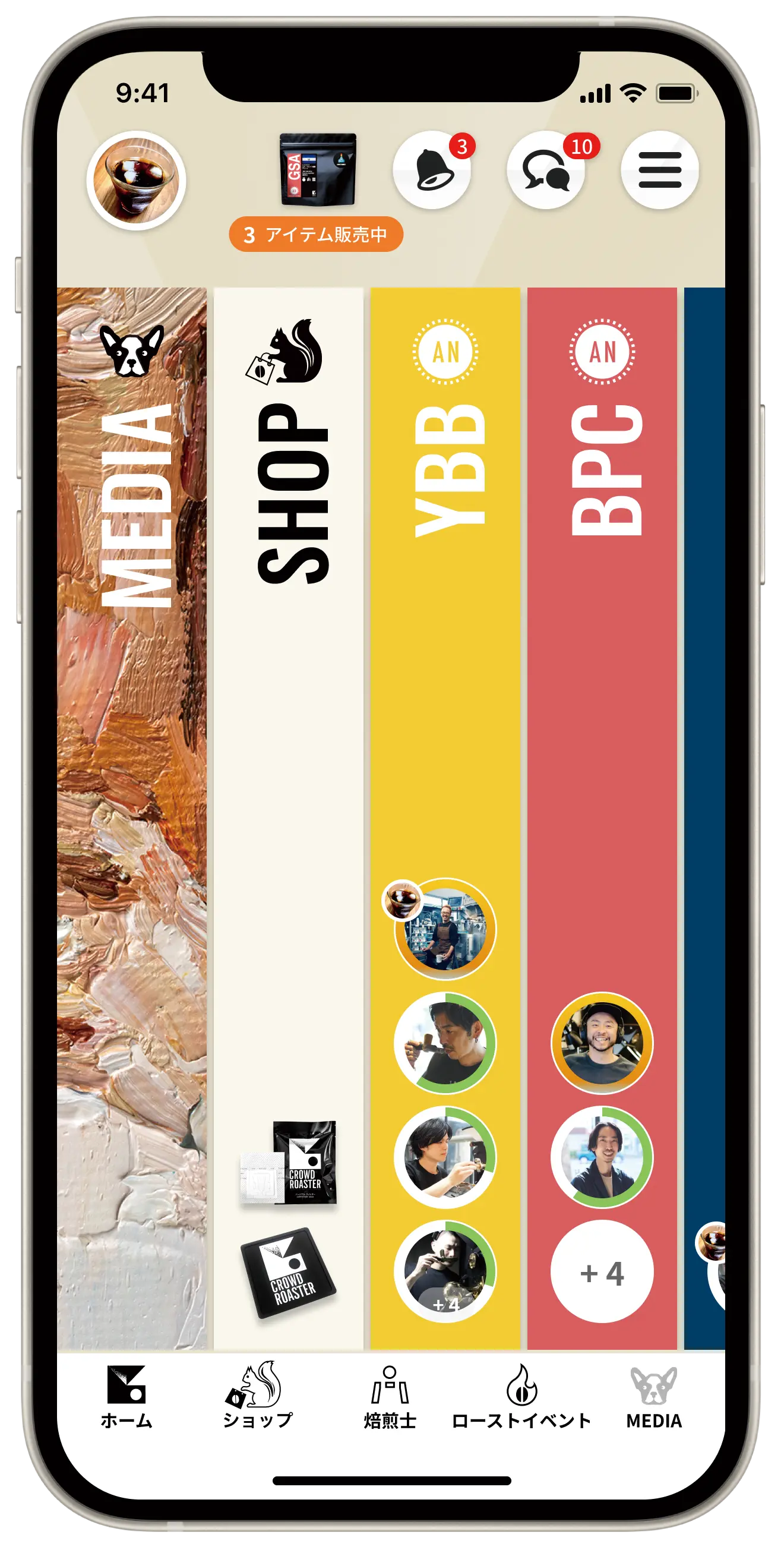We want to discover a versatile roaster with roasting techniques and an understanding of coffee ~ Interview with Fukuzawa of Giessen Japan [Feature: 1ST CRACK COFFEE CHALLENGE 2024]
Recruitment for participants for the "1ST CRACK COFFEE CHALLENGE" (abbreviated as "1CCC"), a roasting competition aimed at discovering and nurturing young roasters, began on Monday, May 13, 2024.
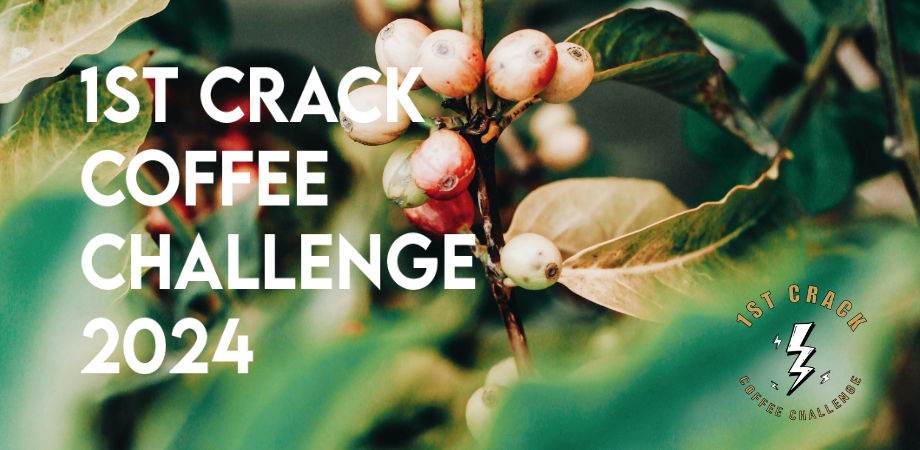
"1CCC" is organized by Giessen Japan, the general distributor in Japan of Giessen, a Dutch roasting machine manufacturer. It is a competition for young people between the ages of 18 and 35, and is different from other roasting competitions in that it focuses on "roasting technique" and "presentation."
The preliminary roasting competition is a competition of how close the participants can get to the roasting of the given beans. The presentations by the finalists are themed on issues facing the coffee industry, with the aim of producing young talent with not only technical skills but also a broad perspective. By the way, it is possible to participate even if you are not a Giessen roaster user.
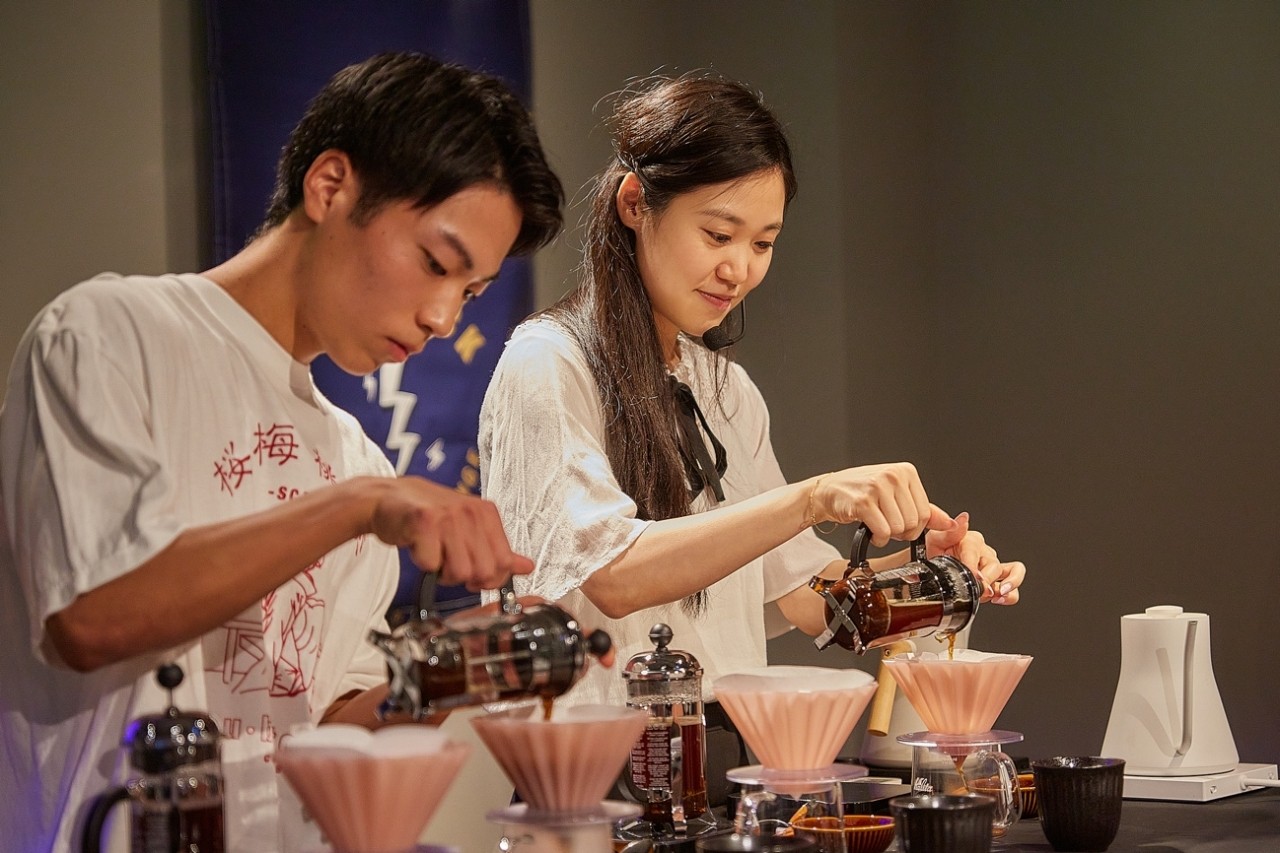
Last year's final presentation
Previous champions of the competition were Takuya Miura from FUKUSUKE COFFEE ROASTERY in the first competition and Machi Kodama from ou.bai.tou.ri coffee roasters in the second competition, both of whom also participated in CROWD ROASTER .
For the third time in 2024, we will be sponsoring CROWD ROASTER , a service that focuses on coffee roasters, just like 1CCC. The third champion will be given the opportunity to purchase a tasting set and attend a talk show at SCAJ 2024 in October.
As the first part of our special feature on 1CCC, we interviewed Yoshisuke Fukuzawa, representative of Giessen Japan, the organizer of the event. He talked about why he started 1CCC as a roasting machine manufacturer, what he expects from the Japanese coffee industry and roasters, and his thoughts on the 2024 event.
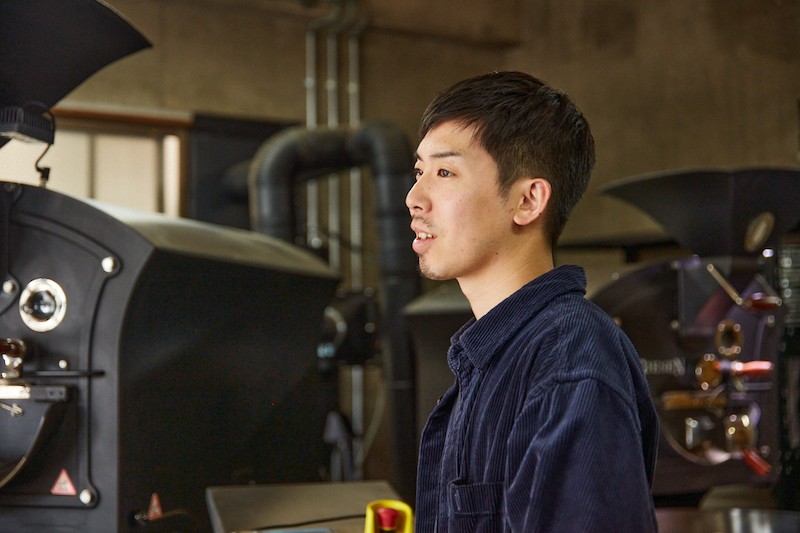
Yusuke Fukuzawa, representative of Giessen Japan
Three points that make 1CCC different from other roasting competitions
--First of all, what was the reason for starting the "1CCC" tournament?
Fukuzawa: The first tournament was held in 2022, but GIESEN has been sponsoring the World Coffee Roasting Championship, a global tournament for roasters, for nearly 10 years, until 2023. GIESEN's original concept was to "grow together with the roasters," and GIESEN Japan also sympathizes with that concept.
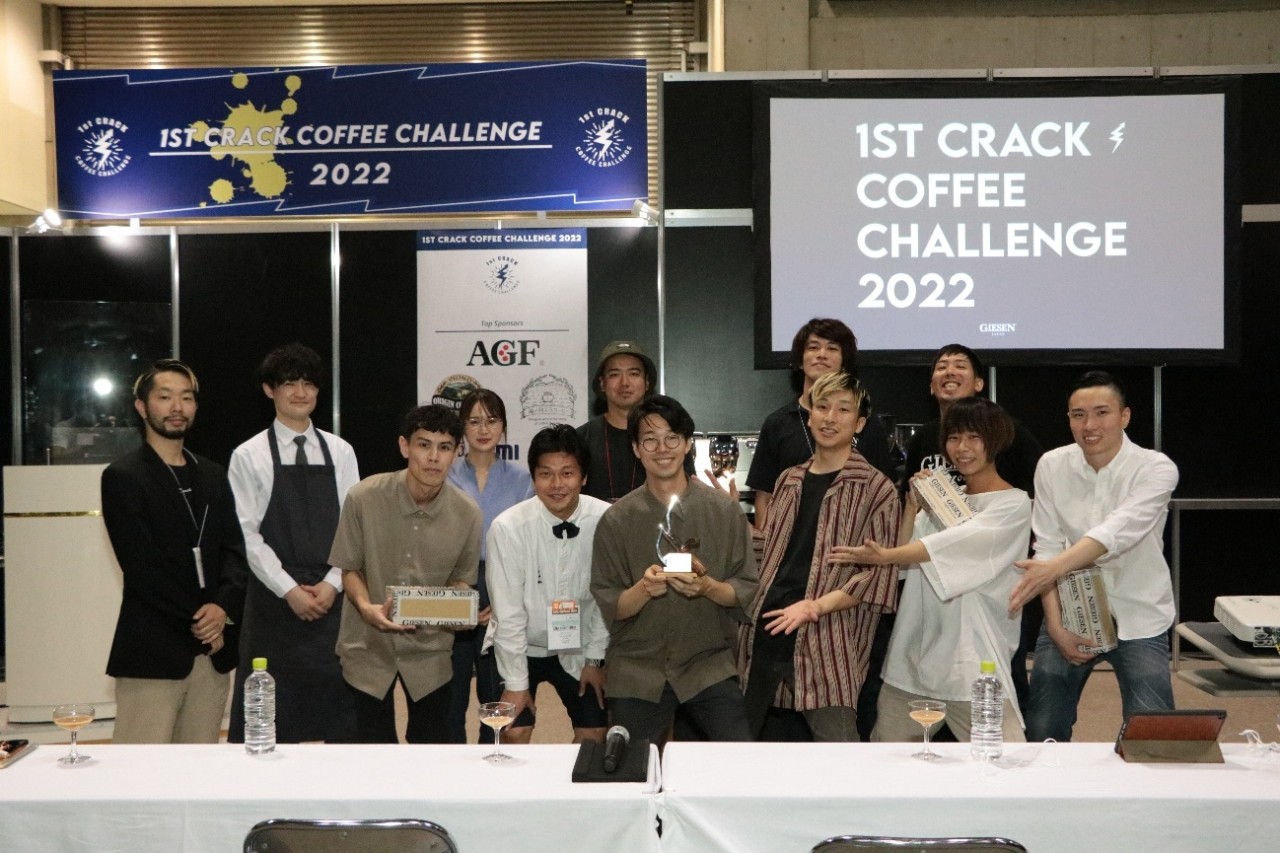
Finalists of the first competition
For Giessen Japan, our job is to sell roasting machines, but our job is only possible if the roasters who use them grow. So we started a competition called "1CCC" as an opportunity for roasters to grow.
The second point is unique to Japan, but roasters are more of a craftsman and don't get to see things in public very often. However, as the number of micro roasteries (small-scale roasteries) increases, I thought it would be even stronger if they had the ability to express themselves and communicate their skills to people, rather than just roasting delicious coffee.
Of course, roasting technique is important, but I also place emphasis on the "expression" aspect of presentation, and I thought that if we had someone with both technique and the ability to communicate, the industry would move forward.
The third point is that, during the two years that Giessen Japan has been sponsoring the Japan Coffee Roasting Championship (JCRC), Japan's highest level roasting competition organized by the Japan Specialty Coffee Association, I have noticed that, overall, there are relatively many of the same people participating in the competition, and there are not many young people.
If that's the case, I thought it would be interesting to have something like the comedy "M-1 Grand Prix" where young people can really break through. That's also why we set an age limit for participants.
For young roasters, even the "JCRC" seems like a pretty high hurdle to overcome. Of course, "1CCC" also aims for a high level of content, but we thought that by making it a competition mainly for young people, the psychological hurdle of participation would be lowered.
──My impression is that this is another roasting competition with a different target audience and role from the "JCRC". In fact, I felt that this competition was more frank than authoritative, but were there any precedents that you used as reference?
Fukuzawa: In 2022, I went to Melbourne to see "THE BARISTA LEAGUE," an international barista competition that originated in Europe.
This competition felt more like an extension of a club, with participants dancing to music, making latte art blindfolded, drinking alcohol and having fun as they competed in a coffee competition. I thought it would be great if there was a place like this in Japan.
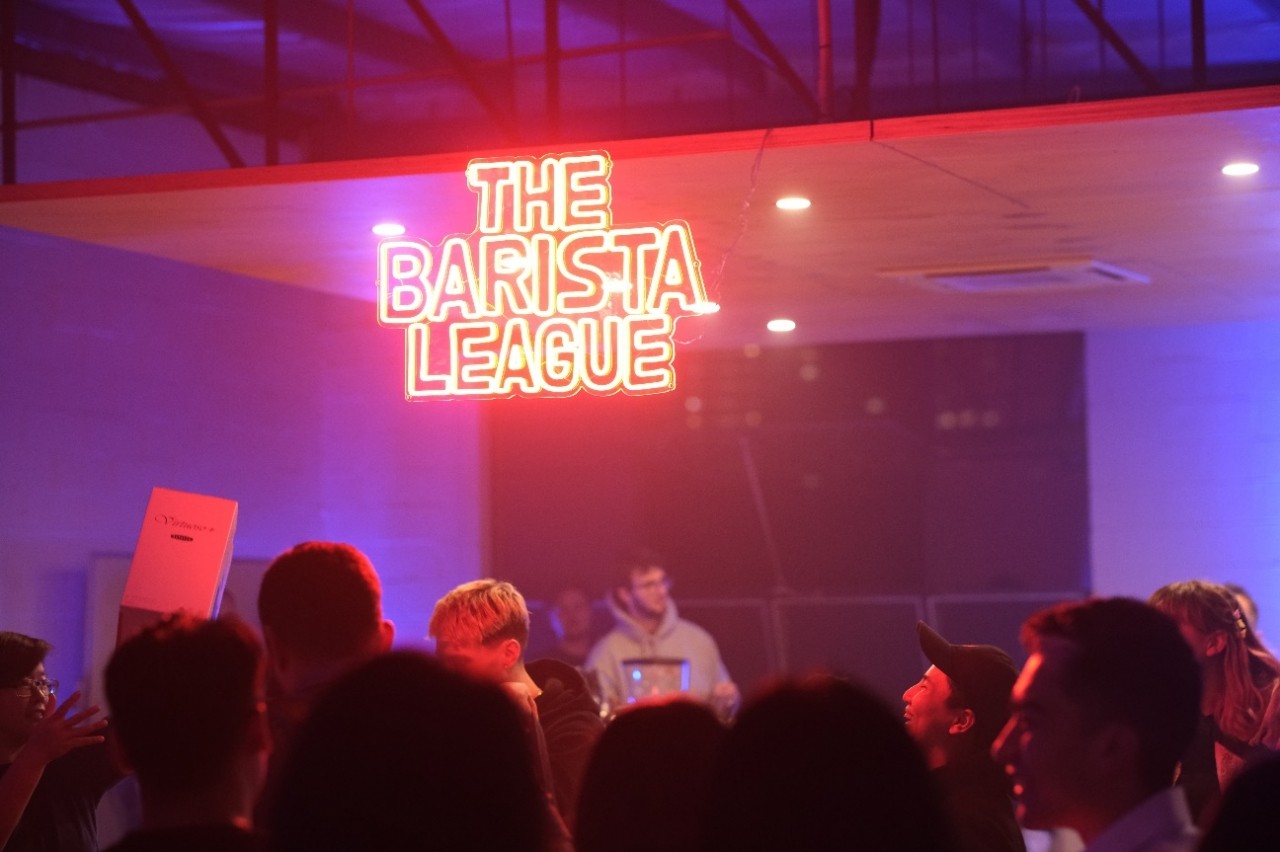
What "THE BARISTA LEAGUE" will be like in 2022
Of course, there are cultural differences, and the culture of loud and boisterous conversation may not suit the Japanese temperament in the first place.
I worked in the US from 2014 to 2016, and it was in the US that I first encountered coffee. When I saw the coffee scene overseas, I thought it was great and I wanted to do the same in Japan.
--Indeed, when it comes to prestigious tournaments in Japan, it does seem like the fun aspect doesn't quite fit in.
Fukuzawa: Yes, that's true. However, I also thought that as an international competition, it was necessary to have a venue where all participants could enjoy themselves.
"1CCC" is of course a competition, but we want to make it a kind of community with the judges, organizers, and competitors together. We want it to be a lively final stage that everyone can enjoy.
--In fact, I heard that the venue for this year's finals will be larger and the number of spectators will be increased.
Fukuzawa: Yes, this year we are planning to have a venue that can accommodate about 200 people. Because it is a coffee conference, there is a certain amount of pressure to have deep discussions about coffee, so it would be nice to watch the event while drinking a beer.
──It's similar to the image of watching the FIFA World Cup or NFL at a sports bar.
Fukuzawa: Yes, that's right. Through 1CCC, I want to make coffee more accessible to the general public.
Coffee roasting is a craftsman's job, and roasters don't often appear in public, but I think it will be a success if we can make the general public think, "Roasting is interesting!" Furthermore, if those who watch it get involved in the coffee industry at some point, more new entrants will join. I hope that the industry will flourish in this way.
The preliminary round will evaluate the "reproducibility of roasting"
--What kind of content are you planning for the 2024 tournament?
Fukuzawa: The competition consists of a preliminary round where the roasting is judged, and a final round where the presentation is judged.
The judges for the preliminary round will be the same as in 2023: Hitomi Ryo of Roast Design Coffee , Kidota Naoko of Starbucks Japan, and Tenma Ikko, the 2023 JCRC champion.
The judges for the final presentations will be announced at a later date.
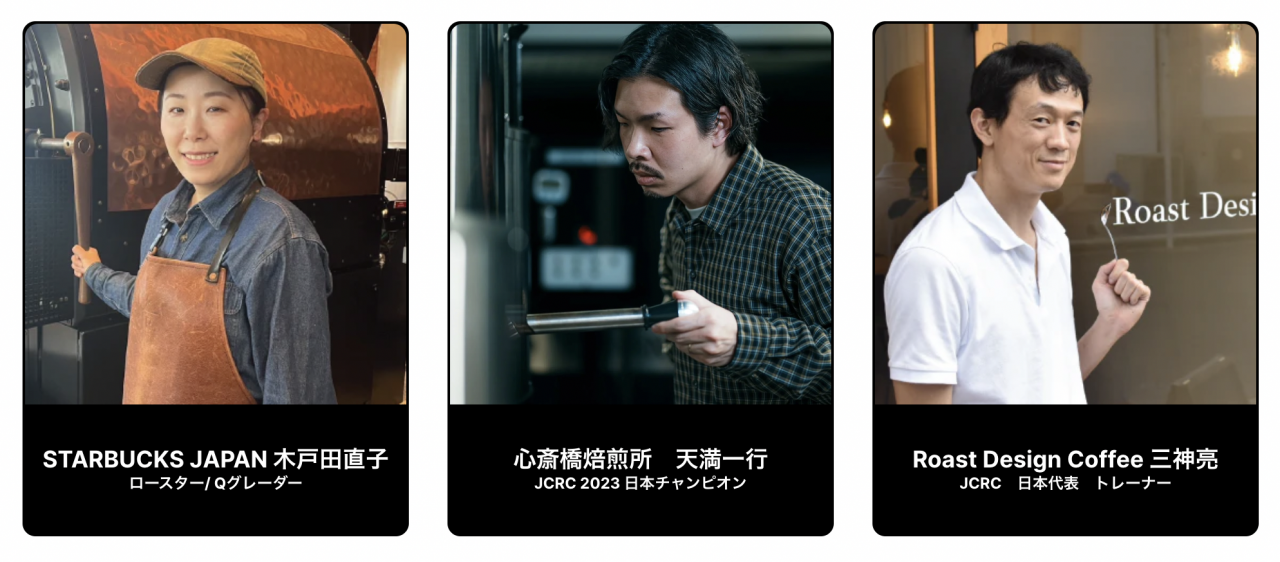
Judges for the 2024 qualifying rounds
--On the other hand, there is also "JCRC." What is the difference between it and "1CCC"?
Fukuzawa: In terms of quality, I think "1CCC" is the only competition that "introduces objective judging."
In competitions such as the "JCRC," the beans are roasted and judges evaluate the "tasty coffee." Of course, the winner is the one who is best based on a fair evaluation of the evaluation criteria, but it is decided by the judges' taste.
However, in our competition, we basically have a sample of beans, and the evaluation method is how close we can get to that. The judges of "1CCC" also use human taste buds to evaluate, but our competition definitely has one goal = one correct answer. Furthermore, with the cooperation of Ajinomoto AGF Co., Ltd., we use gas chromatography analysis to incorporate objective indicators based on data.
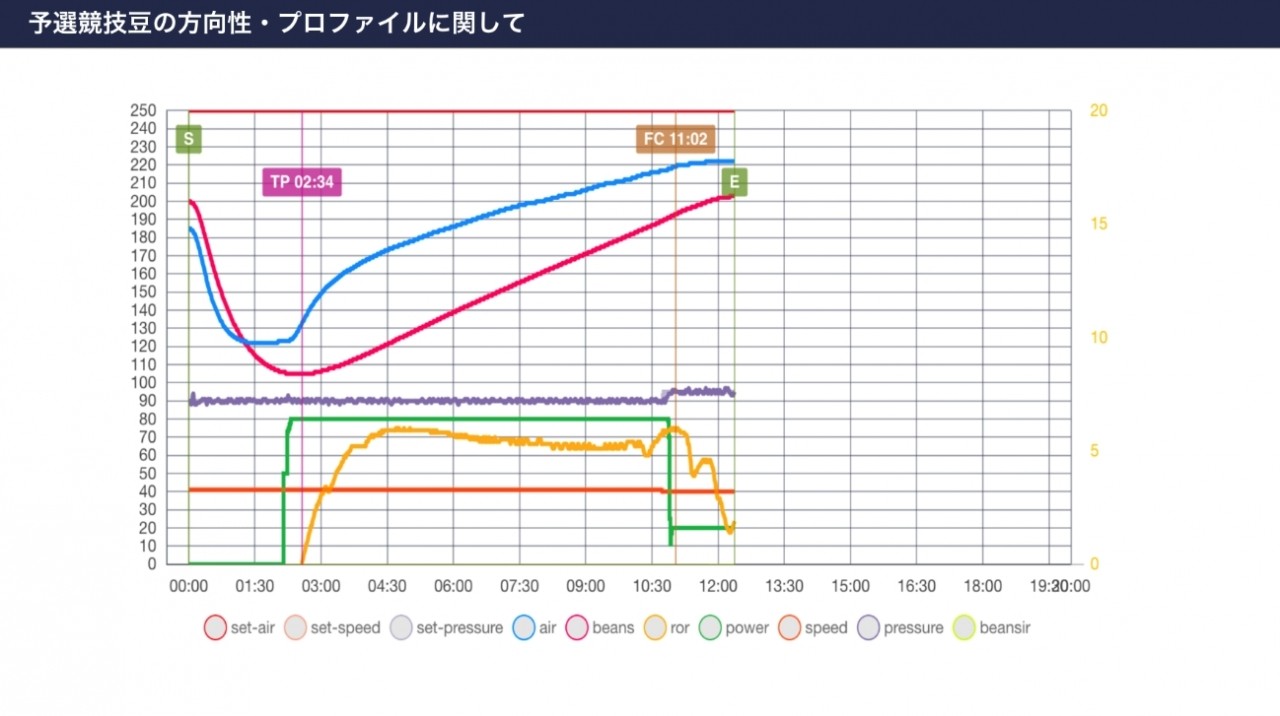
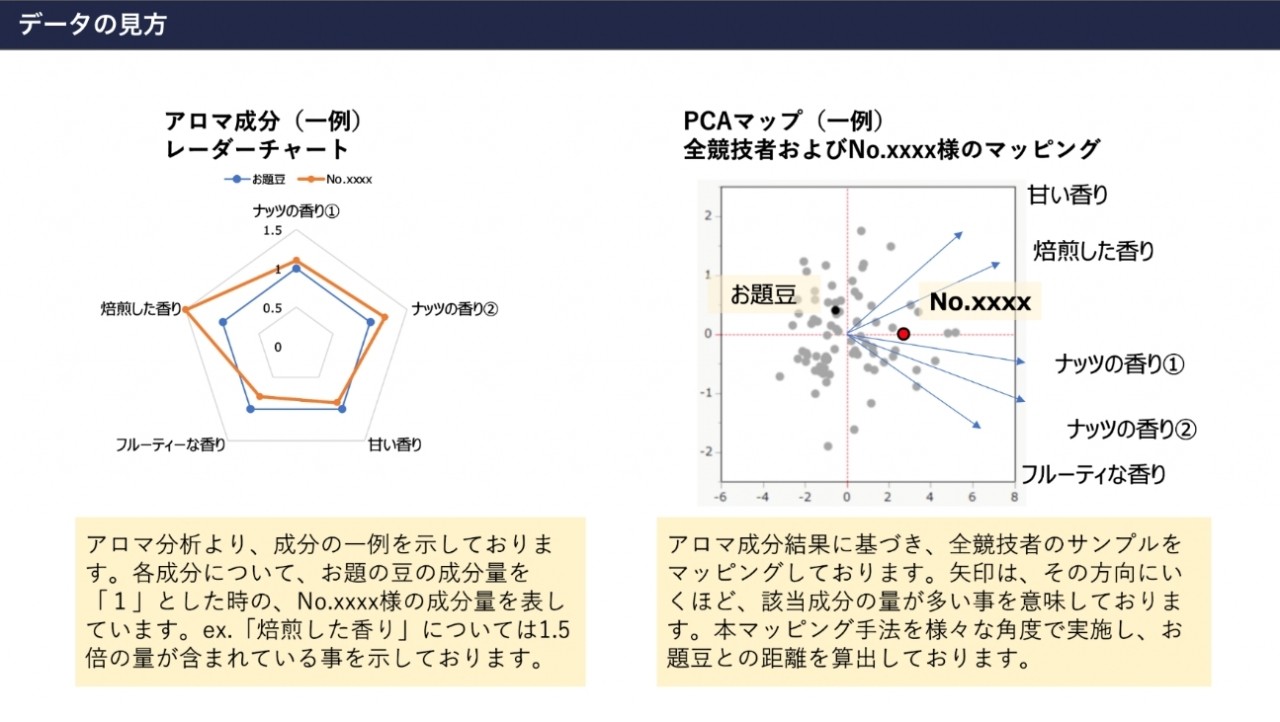
An example of gas chromatography at Ajinomoto AGF. The analysis results of the beans from the preliminary contestants were returned to all contestants.
Why did you introduce this type of evaluation method?
Fukuzawa: When I first thought about what a roaster's job is, I realized that the most important thing is "reproducibility."
For example, if you cup the beans that were roasted yesterday, if they are good you roast the same ones again, but if they are bad you correct them. This is because the job of a roaster is to continue roasting good quality coffee.
So, when we thought about how to evaluate reproducibility, we realized it would be quite difficult to evaluate things that each roaster submits with different ideas about roast level and flavor.
So we thought it might be a good idea to have a standard set of roasted beans and then evaluate whether the beans were close to that standard.
The standard roasted beans themselves may not be the perfect roast for the roaster, but getting the beans closer to the standard beans, both positive and negative, is a positive technical advantage.
In that sense, bringing out the flavor of the beans and incorporating it into your own roasting plan to create the same flavor is the same as the daily work of a coffee roaster.
I think "1CCC" is a competition that pursues the ultimate form of a roaster's work.
-- In terms of the arts, it's similar to the question of whether "art" requires originality, or "craftsmanship" requires reproducibility and precision.
Fukuzawa: Yes, that's right. We don't think roasting is an "art".
Of course, the way that roasters and baristas express and communicate the coffee beans that have been roasted is akin to art. However, in our competition, we want to place more emphasis on reproducing the same thing, and we want to evaluate that.
--If we can do that, the work of roasters will be recognized and the amazing skill of roasting will be conveyed.
Why roasters need to have "presentation" skills
──The other evaluation axis is "presentation." In the "1CCC" finals, each participant will make a welcome drink using beans that they roasted themselves, but the main focus is on the presentation. However, if you think of a roaster as a craftsman, it seems that presentation skills are not really necessary. Why did you think of having the craftsman speak in his own words?
Fukuzawa: Japan has a lot more micro roasteries than the rest of the world. Large roasteries with 30kg or 60kg pots are the norm overseas, but in Japan, even famous roasters tend to use pots of around 5kg. In other words, there are a lot more roasters. So, there are a lot of shops where the owner is also the roaster.
However, I think that in the future, as the quality of roasting improves across the industry and the performance of roasting machines improves, we will reach a point where anyone can roast delicious coffee with the push of a button. When that happens, I don't think it will be possible to differentiate yourself as a craftsman.
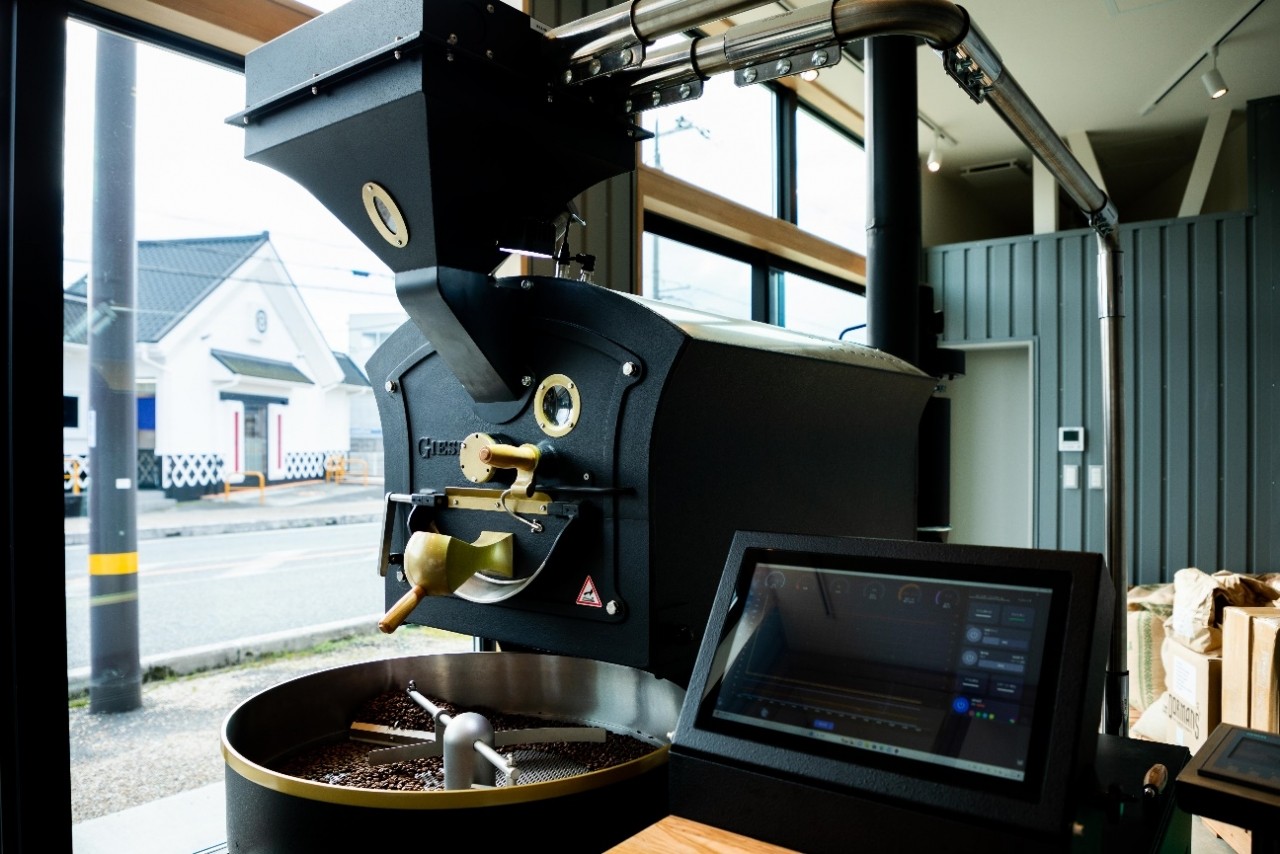
Giessen's fully automatic roaster W6A PRO. Roasting can also be done online.
One day, machines will take over the job of roasting delicious beans. But I still believe that it is people who can add value to the job. We believe that adding that value is what we call "presentation."
--Does the fact that there are so many micro roasteries mean that you want to increase the number of people who use them as a tool?
Fukuzawa: Yes. I think that the unique coffee and roastery circumstances in Japan will become an advantage in the future.
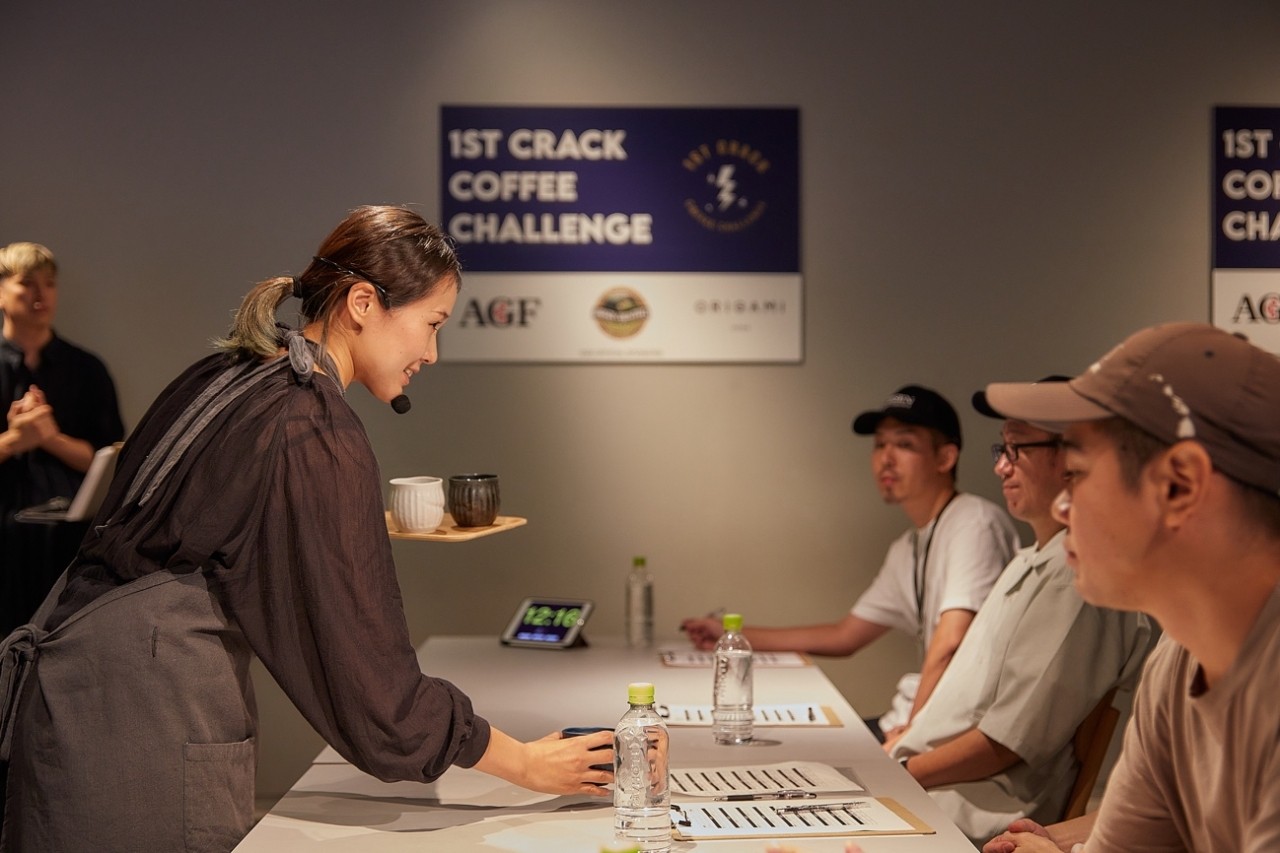
Presentation for 2023
A tournament where you can enjoy "1CCC" itself
--Is there anything new you're planning to challenge yourself with at this year's tournament?
Fukuzawa: This year, including working with CROWD ROASTER in this format, we would like to focus on disseminating information about 1CCC to outside the coffee industry, such as by providing information about external participants and roasters.
Also, as feedback for 2023, we were only able to give a trophy to the first place winner, but we would like to present some kind of prize to the six people who made it to the finals. We would like to strengthen our hospitality so that we can encourage people to try again in the future.
And as I said before, I want to make the final stage even more fun and have everyone there have a great time. I think it would be nice if everyone went home drunk and had a good time (laughs).
--It looks like it's going to be even more fun than last year and completely different from previous roasting competitions. I'm looking forward to it!
1CCC is a high-level competition that overturns the conventional wisdom of roasting competitions, and tests not only the skills of roasters but also the way the participants think about and approach coffee on a daily basis. This year, the third time the competition has been held, it is expected to be a more enjoyable, festival-like event than the past two.
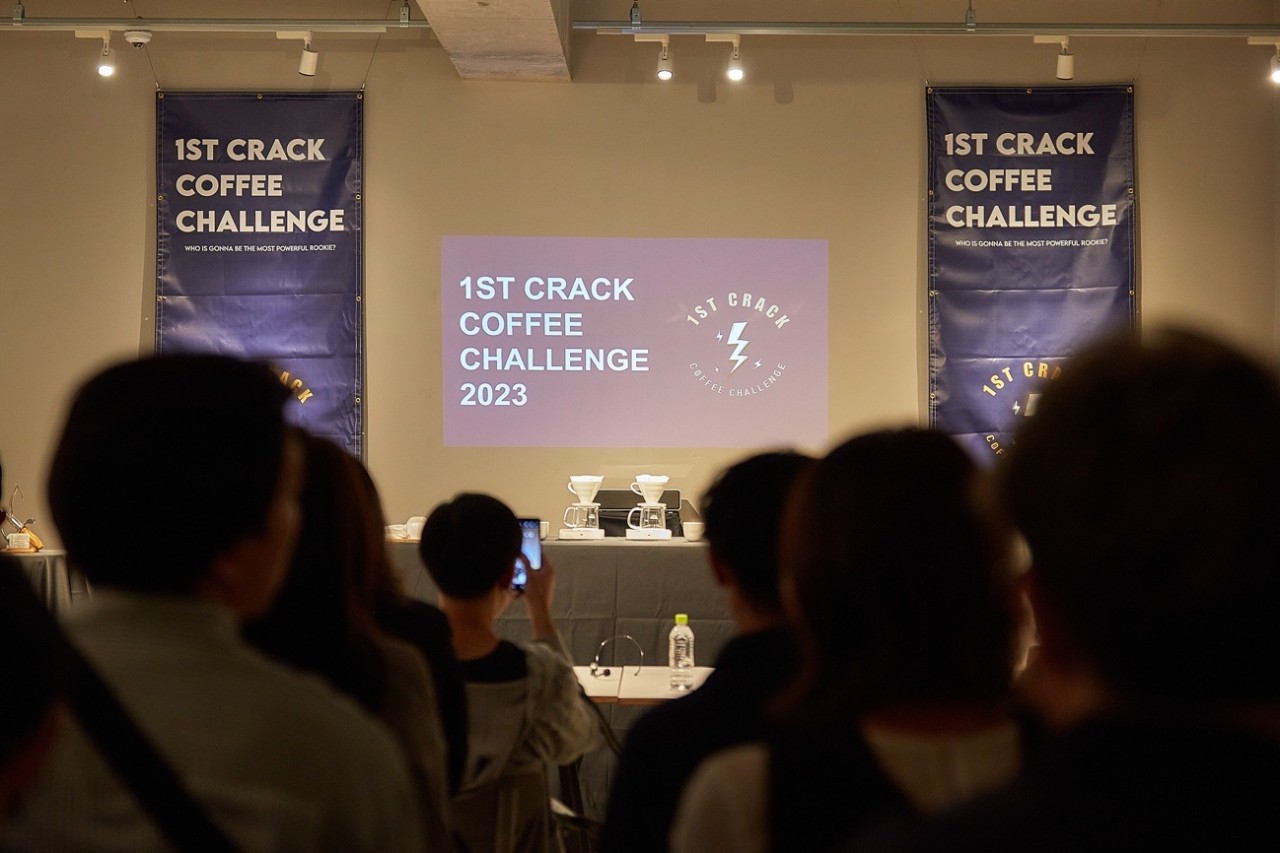
The entry period for roasters is from May 13th to 24th. Roasters can be from other than Giessen, and it seems that there are quite a few participants who use micro roasting machines (small roasting machines) with 1kg pots. If you want to test your skills, please don't hesitate to participate.
Regarding viewing, the preliminary rounds will be streamed online on Instagram Live with the announcement of the finalists, but the finals will be viewable at the venue.
CROWD ROASTER will be reporting on the 1CCC tournament series, so stay tuned.
1st Crack Coffee Challenge Competition Overview
Entry Period
May 13th (Mon) 12:00 - May 24th (Fri) 18:00
Entry fee
12,000 yen (tax included) Includes 3kg of competition-grade green beans
Capacity
100 people
Eligibility
・Individuals and corporations
・Ages 18 to 35 (if you are a minor, please prepare a parental consent form)
・Those who work at a store or have been involved in the coffee business for over a year
Competitors must be able to attend the final venue.
Competition Schedule
・Entry period: Wednesday, May 13th to Friday, May 24th
・June 7th (Fri) ~ Preliminary competition beans shipment
・June 24th (Mon) is the deadline for submitting qualifying beans (must arrive by this date)
・7/26 (Fri) Preliminary cupping evaluation & 6 finalists announced @Instagram Live
・9/23 (Fri) Final Stage @Tokyo Culture Culture
Competition ticket application site
About the Qualifiers
Qualifying Rules
- Competitors will be given 3kg of competition green beans and 30g of competition sample beans in advance.
・Cupping the "competition sample beans" will be carried out to capture the roasting characteristics and devise a roasting profile.
- Submit 130g of roasted beans along with the submission sheet by the deadline.
- The submitted beans are evaluated using gas chromatography analysis etc.
-Twelve contestants will be selected based on their scores closest to the analysis results of the "competition sample beans."
- The 12 cups will be lined up and the preliminary judges will cup them.
- The cupping evaluation criteria are based on some of the WCRC score sheets.
- In the preliminary cupping, the six people whose results are closest to those of the "competition sample beans" will advance to the finals.
Freezing coffee beans
- The sample competition beans used in the preliminary cupping will be frozen 7 days after roasting.
- The competition beans submitted by the competitors will be frozen on Tuesday, June 25th.
Water used in preliminary cupping
・Water provided by Mother Water will be used.
About the grinder used in the preliminary cupping
-Use MAHLKONIG EK43 (flat 98mm).
About the Final
Advance preparation
- Prepare presentation materials in the specified format and submit them by the deadline.
- The beans to be used in the finals will be selected from the green beans provided by the sponsors.
The degree of roasting is not an issue.
- When using blended beans, you may also use your own beans as long as they contain at least 50% beans provided by the sponsor.
1CCC 2024 General Sponsors' Topic
- Regarding the theme from general sponsor Ajinomoto AGF Inc., submit a recipe for an original drink using instant coffee.
Final Stage
- Create a presentation and welcome drink based on the theme within the time limit (20 minutes).
・Any type of coffee drink can be served. (※Alcoholic drinks are not allowed)
・When serving drinks, they will be poured into cups made by KI ORIGAMI JAPAN Co., Ltd.
・Please use the espresso machine and grinder provided at the venue. No other equipment is permitted.
・The use of open flames is strictly prohibited.
- Any other ingredients or seasonings that you wish to bring must be declared in advance when submitting your presentation materials. Anything not declared in advance will be prohibited from being brought in on the day. Note that even if declared in advance, bringing in may be prohibited if the organizers deem it inappropriate.
- On the day of the final, you may arrange for up to one assistant to help prepare and serve drinks.
Winning Prize
①Giesen Coffee Roasters original trophy
② Japan-Holland round trip airfare + Giessen Factory Tour Manabu
③Invitation to the Tokunoshima Coffee Harvest Festival sponsored by Ajinomoto AGF Co., Ltd.
④Support when purchasing a roaster
* You will be responsible for all expenses related to your travel and stay (accommodation, food, passport fees, etc.)
*Support when purchasing a roaster will be available indefinitely to past champions.
Final Stage Overview
schedule
Friday, September 13, 2024
venue
Tokyo Culture Culture
(4F cocoti SHIBUYA, 1-23-16 Shibuya, Shibuya-ku)
Advance viewing ticket
2000 yen (including 1 drink)
schedule
13:00~ Opening
14:00~ Competition start
18:00〜 Barista & Roaster Party
20:00~ Announcement of results/awards
~21:00 Closing
*The schedule for the final competition may be subject to slight changes.
Ticket application website (Peatix)
Organizer
Giessen Japan
Official Sponsor
Ajinomoto AGF Inc.
ORIGIN COUNTRIES
CROWD ROASTER
HARIO Corporation
RANCILIO GROUP
Melitta Japan Co., Ltd.
ORIGAMI
TONY'S CHOCOLONELY
Mother Water Co., Ltd.
Cafe Snap
FAIRTRADE JAPAN
1CCC Finals Site
If you want to enjoy coffee more deeply
" CROWD ROASTER APP"
Manabu at CROWD ROASTER LOUNGE
・Push notifications for article updates・Full of original articles exclusive to CROWD ROASTER
・Direct links to detailed information about green beans and roasters
App-only features
- Choose green beans and roasters to create and participate in roasting events・CROWD ROASTER SHOP: Everything from beans to equipment is readily available
・GPS-linked coffee map function
